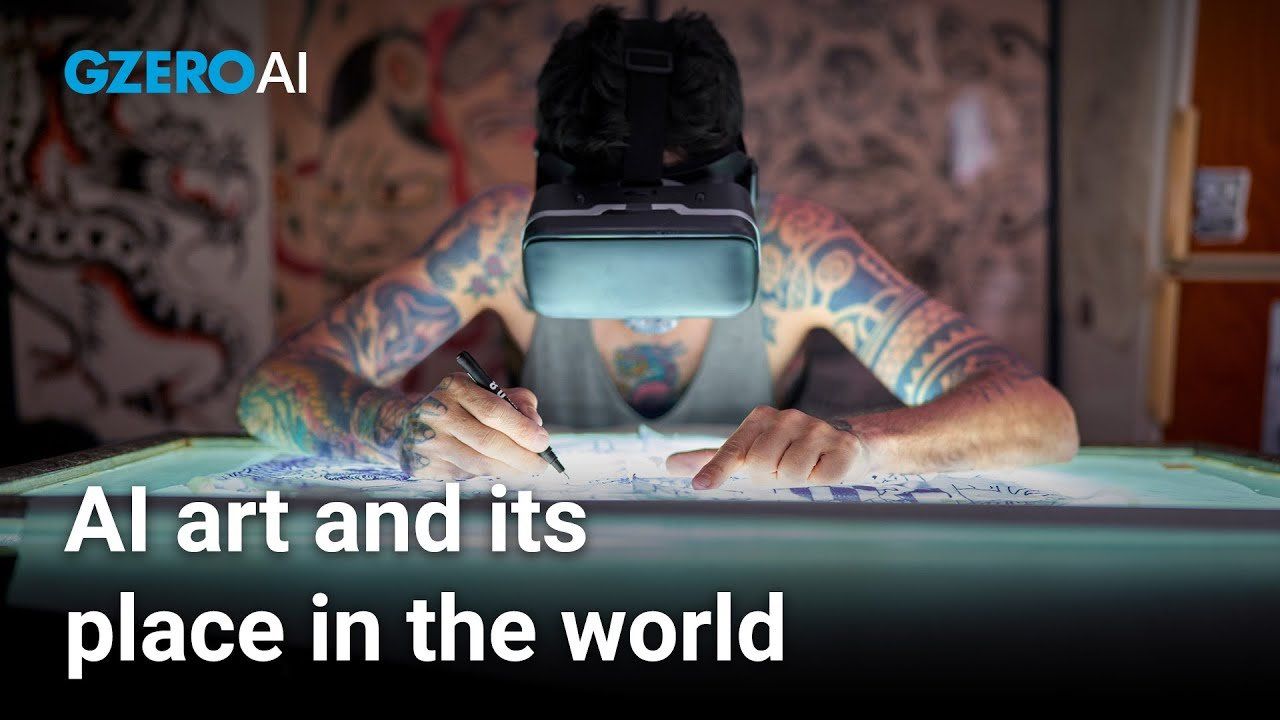GZERO AI Video
How is AI shaping culture in the art world?

How is AI shaping culture in the art world? | GZERO AI

In this episode of GZERO AI, Taylor Owen, host of the Machines Like Us podcast, recounts his conversation with media theorist Douglas Rushkoff about the cultural implications of the ongoing AI revolution, which raised a couple of questions: Will AI enhance cultural production, similar to Auto-Tune and Photoshop, or produce art that truly moves society. Will people even care about its role in cultural production? However, Owen notes that current AI-generated content often lacks the cultural depth that our art and culture demand.
So, I recently had a wonderful conversation with the media theorist Douglas Rushkoff about what this current moment in AI means for our culture.
For the past 30 years, Rushkoff has been chronicling the relationship between emerging technologies and the response of our cultural production. And in our conversation, he referenced a really wonderful Neil Postman observation. Neil Postman, the great media theorist who came up with the idea of "amusing ourselves to death." When Postman was asked to describe what media is, he said, "That media is a medium in which culture grows. It's the Petri dish in which we develop culture as a society." It's a wonderful metaphor, and that left me wondering: if a medium is the thing in which culture grows, what kind of culture is growing from AI?
Will this culture be more like Auto-Tune or Photoshop, so cultural production that's augmented by AI? And what kind of art will be built with AI? Made with AI? Will it be used to create the equivalent of art in a bathroom, as Rushkoff pointed out? Or to make real art that impacts us and moves us as a society? And how will we as citizens know the role that AI played in cultural production? Will we care? Will we want something like GMO or organic labels for a cultural production that leverages AI? Or will we demand AI-free spaces, as are starting to emerge, places online and in the physical world that are guaranteed to have not been touched by AI? And if we do know that art is driven by AI, created by AI in its entirety, will we even care?
And I'm very skeptical of this. I worry that we won't. And I think when I look at the world of a culture being created by AI, I see a dulling. My Twitter feed is flooded with AI-generated crap, and I'm just not seeing the whimsical, delightful, powerful, and important cultural content created by AI that we need as a society, that we demand of our art and culture.
I hope this changes. I really do. And I hope part of how we view the evolution of AI, in our society, should be from the lens of what kind of culture it is building. I'm Taylor Owen, and thanks for watching.
Think you know what's going on around the world? Here's your chance to prove it.
20: The number of fallen Ukrainian athletes and coaches depicted on a Ukrainian skeleton racer’s helmet at the Winter Olympics, which prompted the International Olympic Committee (IOC) to disqualify him on Thursday.
The Russian government has begun blocking the popular messaging apps WhatsApp and Telegram in a sweeping crackdown aimed at forcing Russians to use a state-backed alternative called MAX, which critics say would enable censorship and surveillance.